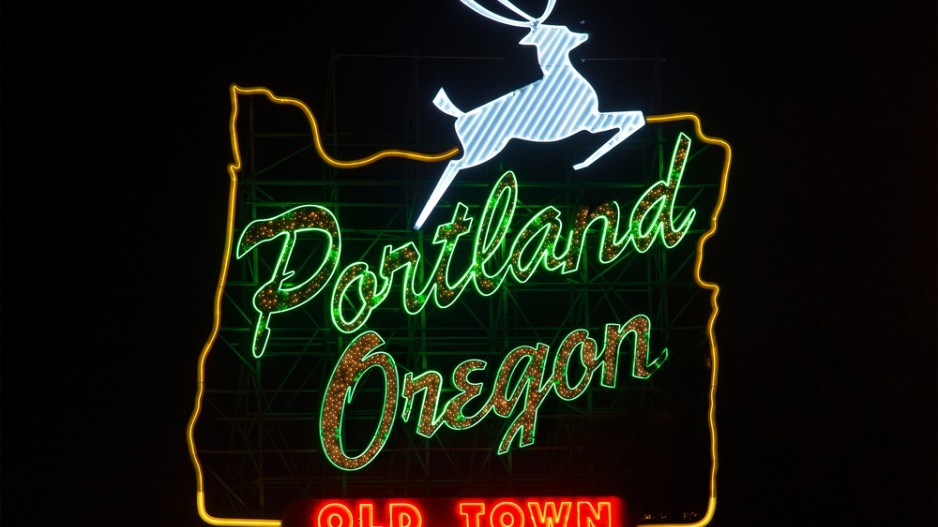Portland and Vancouver have often been accused of being joined at the hipster. They both pride themselves on their green-ness, weirdness, active lifestyles and general urban trendiness. But there are differences.
Business observers would note that Portland’s No. 1 active lifestyle company, Nike, outclasses ours with annual revenue 13 times that of Lululemon. Transit observers would note that our percentage of residents who use transit is three times that of Portland (which leads the U.S. for cities our size).
On many streets and parks in Portland, desperate wandering members of the underclass are more numerous, noisy and visible than those fighting similar demons in Vancouver. And in certain neighbourhoods, smartly linked by a circuit of bike routes linked by signage-for-dummies (yes!), chronic hipsters in their beards and tats and orange shoelaces predominate.
Notwithstanding a shared glut of hipsters, Portland is further along the stealth-green-sharing-economy curve than we are. They’ve just lifted their ban on ride-hailing companies like Uber and Lyft by launching a 120-day experiment with completely unregulated rides for hire. That’s right – anyone can hire out their vehicle and charge whatever they want – no minimum or maximum fares for taxis or “transportation network companies.”
There are restrictions: Uber and Lyft had to cut a deal with the city on insurance, inspections, driver background checks, permits, data-sharing and serving customers in wheelchairs at no extra charge. With taxi drivers’ average net incomes bumping along at $6.22 per hour, this change is sure to come with casualties.
This is just part of the story of a city wrestling with the consumer-driven demons of the sharing economy. Portland has also come up with rules for room-renting software companies like Airbnb.
Although they’re almost impossible to enforce, they officially require hosts to get licences, have safety inspections and collect lodging taxes from Airbnb.
Next stop: driveway-
sharing apps. According to the Willamette Week, two new Portland-developed parking apps are poised to connect businesses or people who have unused driveway space with drivers who want a convenient parking space.
Venture funders are jumping on board these app companies. Like other sharing-economy technologies, these offer the irresistible efficiency and asset-optimization features of sharing – and inevitable clashes with old-economy zoning. In this case, it’s against city bylaws to use residential space for commercial uses.
The regulatory bypass for driveway renters is that neighbours are extremely unlikely to complain to the city: how would they know which parked cars are commercial clients and which are resident-owned?
Like the objectionable founder of Uber, these entrepreneurs are cocky enough to stand on the wave of consumer demand and dare regulators to topple them.
Portland is also a trailblazer on greening its food-truck scene. Vancouver’s scattered food trucks spew exhaust fumes at the city’s green goals with their noisy stand-alone generators, dependence on public bins for their waste disposal and their need to drive every night to an off-hours parking space.
In Portland, you mostly see food trucks permanently clustered in converted parking lots with shared garbage cans (OK, multi-hole containers), porta-potties, central power and picnic tables.
And what about reclaiming streets for non-automobile uses?
While Vancouver is limited to its annual one-day car-free festivals, Portland kicked off its season of Sunday Parkways on Mother’s Day with a record 16,250 cyclists, rollers and walkers enjoying 10 kilometres of car-free streets and greenways.
Each of the five corporately sponsored Sunday Parkway events will be in a different neighbourhood. Hey, Vancouver!
It’s hard, this greenest-city-in-the-world thing. Other cities keep getting in the way. •
Peter Ladner ([email protected]) is a co-founder of Business in Vancouver.




